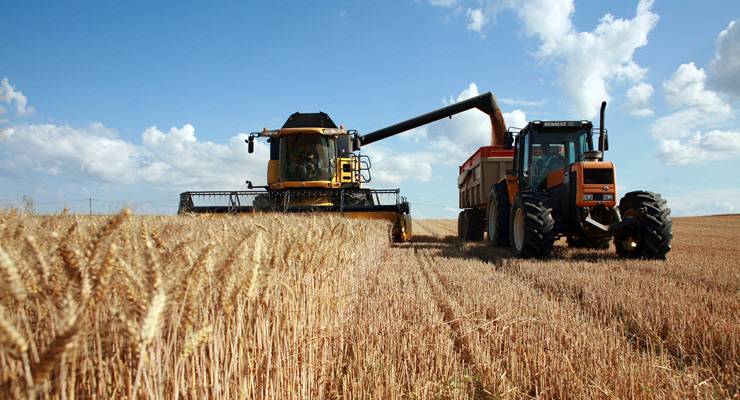
It’s been a bad year for everyone except the grain farmers. After a painful drought gave way to the wettest winter in four years, farmers across the country are braced for a bumper harvest.
It’s a rare economic success story in a year when Australia slid into its first recession in three decades. But is it enough to help drive our post-COVID economic recovery?
When it rains, it pours
The numbers show just how the grain producers’ fortunes have turned.
According to analysis by Rabobank, farmers will harvest 47.4 million tonnes of winter grains like wheat and barley, an increase of 63% from last year.
That boost is driven by enormous growth of 366% in NSW, where the drought was particularly bleak. A year ago, 90% of NSW was in drought. And while the extent to which the drought has broken differs depending on who you ask, a wet winter and spring have boosted the sector greatly.
And, despite the parlous state of the international economy, thanks to a weaker dollar, and higher global grain prices, grain exports could do even better than the last time we had a bumper crop four years ago, according to The Australian Financial Review.
‘Agriculture won’t save us’
A bumper harvest will be welcome relief in the regions. It’ll allow farmers to pay off debts and build up their reserves. And it’ll have a big stimulatory effect on regional economies.
But that relief will be just a temporary blip, according to University of Adelaide agricultural economist David Adamson.
“You’ll stimuluate the economy for a short time, which is good for the regions. But one harvest doesn’t make an economy,” Adamson said
“There are not that many farms and not that many farmers.”
Currently, Australia’s agriculture sector accounts for less than 3% of GDP.
And while economist Saul Eslake says it would make sense in theory for the sector to play a key role in our post-COVID economy, there are a few big barriers to that panning out.
Climate change is a huge challenge. While we’re a land of droughts and flooding rains, as Dorothea Mackellar and every single Nationals dinosaur tell us, those droughts are only going to get more frequent in a hotter planet.
“As climate change takes hold, we’ve got more bad news rather than good news coming through,” Adamson said
“You might have two or three good seasons, but the drought will be back.”
Droughts of increased frequency and more unpredictable weather events make it hard to place faith in the nation’s long-term economic health in farming.
The success of Australia’s agricultural exports are also limited by trade barriers around the world that in effect leave us locked out of huge prospective markets like the European Union.
“Agricultural markets are among the most protected and subsidised in the world,” Eslake said.
“It doesn’t matter how good our products are, almost every country in the world restricts agricultural imports in some way.”
So, while 2020 has brought a blessing for farmers, they won’t lead us back from recession.
“Ag won’t save us,” Adamson said.








The vast majority of our agricultural product is exported, grain, fibre or meat.
Given the utter unsuitability of most of the regions where we are growing wheat (with a yield a fraction that of the EU, US or even an Iraqi peasant with a bullock & a bent stick plough) this amounts to the export of water and soil nutrients.
The sooner we realise that we have more than enough good soil to feed ourselves with a modicum for export,the sooner we can begin the desperately need repair of the country.